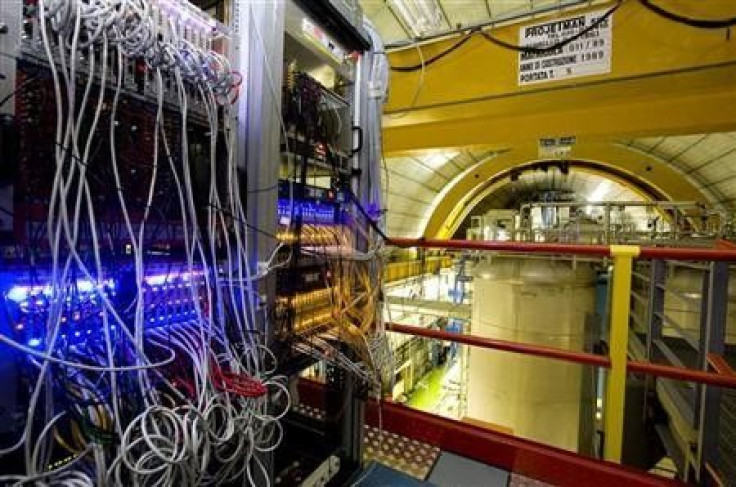CERN to Re-Run Einstein Tests in May after Cable Doubts

(Reuters) - Physicists are to run new tests in May after the CERN research institute said on Thursday that its startling findings appearing to show that one of Einstein's fundamental theories was wrong could have been caused by a loose cable.
The CERN lab near Geneva appeared to contradict Albert Einstein's 1905 Special Theory of Relativity last year when they reported that sub-atomic particles called neutrinos could travel fractionally faster than light.
Einstein's theory, which underpins the current view of how the universe works, says that nothing can travel faster than light, and doing so would be like traveling back in time.
CERN said two possible effects had been identified that could have an influence on its neutrino timing measurement during its OPERA experiment. "New measurements with short pulsed beams are scheduled for May," it said in a statement.
One effect concerned an oscillator used to provide the time stamps for GPS (Global Positioning System) synchronizations, which could have led scientists to overestimate the neutrino's time of flight.
However, the other effect appeared to be more significant in the faster-than-light finding of the original OPERA experiment.
"The second concerns the optical fiber connector that brings the external GPS signal to the OPERA master clock, which may not have been functioning correctly when the measurements were taken," said CERN. "If this is the case, it could have led to an underestimate of the time of flight of the neutrinos."
The faster-than-light finding was recorded when 15,000 neutrino beams were pumped over three years from CERN to an underground Italian laboratory at Gran Sasso near Rome.
James Gillies, a spokesman for CERN (the European Organization for Nuclear Research) said late on Wednesday that the result was now in doubt.
"A possible explanation has been found. But we won't know until we have tested it out with a new beam to Gran Sasso," Gillies told Reuters in Geneva.
Physicists on the experiment said when they reported it last September that they had checked and rechecked over many months anything that could have produced a misreading before announcing what they had found.
A second test whose results were announced in November appeared to provide further evidence that neutrinos were travelling faster than light. But many experts remained skeptical of a result that would have overturned one of the fundamental principles of modern physics.
Edward Blucher, chairman of the Department of Physics at the University of Chicago, said the original finding would have been breathtaking if it had been true. As it was, the research inspired many spirited discussions, if few believers.
"I don't think I met anyone who said I bet it's going to be true. I think the people on the experiment worked as carefully as they could and I think they ran out of ideas of what could be wrong and they decided to present it," he said.
"Maybe they should have waited a few more months," he added.
© Copyright Thomson Reuters 2024. All rights reserved.











